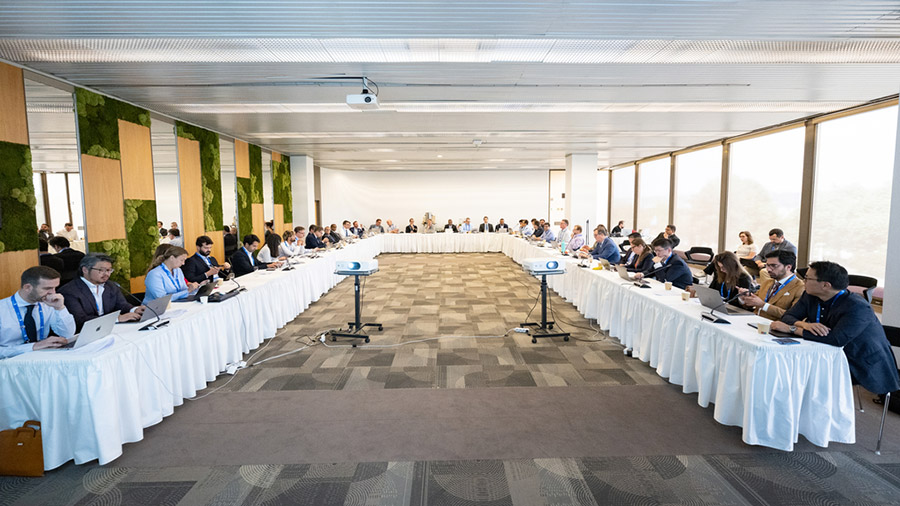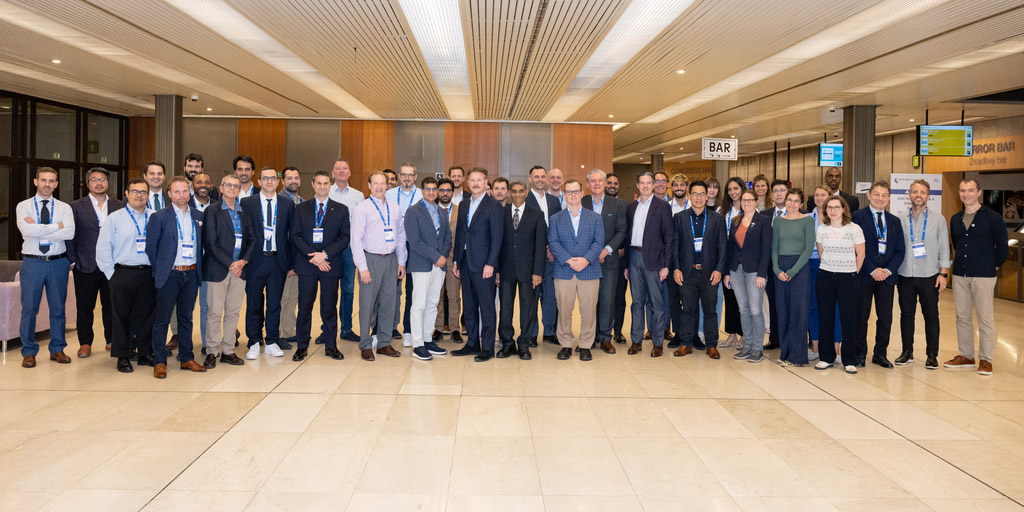Spinal cancer—why patients' treatment expectations matter

A significant proportion of patients with spinal metastatic disease are unhappy with the results of their surgical or radiation treatment. Oftentimes, the reason is that their prior expectations are unrealistic. A research project by the AO Spine Knowledge Forum Tumor has devised a new questionnaire to better align what patients expect before their treatment and what they perceive afterwards. A paper introducing the new questionnaire was published in Neurosurgery.
Thanks to major improvements in diagnostics and treatment methods in recent years and decades, cancer patients who develop spinal metastases can expect to live much longer today than they could just a few years ago. Unfortunately, the fact remains that for the vast majority of spine cancer patients, there is ultimately no hope of a cure. The main objective of any treatment therefore is to maintain or improve their quality of life as much as possible by improving their symptoms for however long they have left.
However, although both surgery and radiation therapy are very effective treatment methods in this regard, research shows that almost a quarter of patients report dissatisfaction with the results of their treatment. One of the reasons for this relatively high rate could be that patients' expectations before undergoing treatment—for example in terms of pain and symptom relief as well as recovery and prognosis—digress significantly from the actual outcomes they observe in themselves afterwards.
Unexplored issues—Patient Expectations in Spine Oncology
Curiously however, systematic methods or tools to precisely map out the expectations patients with spinal metastases have of undergoing surgery or receiving radiation have not been available so far. In fact, the Patient Expectations in Spine Oncology (PEPSO) research project, which was initiated by the AO Spine Knowledge Forum (KF) Tumor, has found that oftentimes, spine surgeons and radiation oncologists simply do not know at all what their patients are expecting.
"Among the key findings of our research is that although almost every physician acknowledges the importance of patient expectations, as well as their influence on patient-reported outcomes, they neither assess nor address them on a regular basis," says Versteeg, who acted as co-principal investigator for the PEPSO project.
Instead, the researchers found, pre-treatment conversations between patients and their doctors often focus on the informed consent. They will also regularly revolve around detailed explanations of the patient's condition, treatment procedures, potential complications and the risks involved. "Unfortunately, physicians generally do not discuss what patients can expect in terms of pain and functional recovery after the procedure," says Anne Versteeg. "And this is despite the fact that many of them do acknowledge that patients tend to have overly optimistic expectations, which emphasizes the importance of addressing this issue."
New questionnaire for more realistic patient expectations
One of the ways in which this may be achieved is a new questionnaire developed by the researchers as part of the PEPSO project. The form, which comprises 22 questions on two pages, allows patients to outline how expect their planned treatment to affect a range of different symptoms and abilities, and how long after their treatment these changes will take hold. The questionnaire also focuses on issues such as expected pain medication intake and overall quality of life. In addition, it contains a series of questions about patients' consultations with their surgeon or radio oncologist about their spinal metastases.
The questionnaire is intended to provide physicians with a brief but standardized method to verify their patients' expectations. Importantly, it enables them to better guide their patients towards more realistic perspectives where necessary as a means of ultimately improving their satisfaction with the outcomes of their treatment.
Multi-stage approach
The questionnaire was developed systematically in several steps. First, the researchers conducted a series of individual interviews with 24 patients and 22 physicians involved in the care of patients with metastatic spinal disease, including spine surgeons, radiation and medical oncologists, and physiatrists.
Before the planned procedures, patients and their family members were interviewed about their expectations regarding treatment outcomes as well as the information provided by their physicians. In a second post-treatment interview, their experiences and the fulfillment of their pre-treatment expectations were discussed. Physicians meanwhile were asked broad and open-ended questions regarding the information they provide to patients and how they verify patient expectations.
Based on the results of this first round of interviews, a preliminary version of a questionnaire was developed, which was then given to an additional sample of patients to validate the content and language. In a further step, the questions as well as the response options were revised to arrive at the final version of the questionnaire.
Bringing patients to the forefront
Ultimately, says Charest-Morin, the PEPSO questionnaire is about facilitating better communication between physicians and their patients, and, as a result, better patient-centered care. Previously, she says, physicians could only assume what their patients might be expecting, and then try to address that in clinic.
"However, had we based our questionnaire only on the generic assumptions of caregivers, we would likely have left out elements that are really important to patients. For example, many patients have certain expectations about the time it will take for them to return to their old social life, or about their mental well-being. Our research shows that they often feel as though their physicians are not routinely addressing those expectations with them.”
The researchers also found that many patients underestimate their recovery time while at the same time overestimating their chances of complete recovery. As the majority of spinal metastases patients have a comparatively low chance of survival, treatment in many cases is purely palliative. Nevertheless, the research showed that a significant proportion of patients assume that they have a chance of being cured completely.
Charest-Morin is hoping that the questionnaire will help physicians address unrealistic expectations in a timely manner, positively influencing post-treatment satisfaction—a practicality, she says, the research team had in mind when designing the questionnaire. "Patient satisfaction with an episode of care is closely related to their prior expectations. I truly believe that a well-educated patient does better with surgery. An engaged patient will be more proactive and will participate more in their recovery. Taking the time to address someone's expectations allows them to be a better partner in thei own episode of care."
Practical tool for routine use
The research team designed the questionnaire in a way that it can easily be integrated into the daily routines of oncological departments. The aim is to lower the barriers to assess and discuss patient expectations by providing clinicians with a tool that is scientific while at the same time not too cumbersome. Spinal metastasis patients could, for example, be asked to complete the questionnaire following their initial clinical consultation, during which they discuss their condition and the need for treatment with their physician.
The surgeon or radiation oncologist can then see from the answers whether a patient has realistic expectations and whether they have understood what has been explained to them. If that is not the case, then the physician has the chance to address any unrealistic expectations and direct the patient towards more realistic ones.
"Fundamentally, it is a way of ensuring that everyone is on the same page," says Dr Charles Fisher, Professor at the Division of Spine Surgery at the University of British Columbia and Vancouver General Hospital. As Chair of the AO Spine International Research Commission and a member of the AO KF Tumor advisory board, Fisher served as co-principal investigator on the PEPSO project. "With other patients, for example with hip arthritis, that is usually not so difficult. But patients with spinal metastatic disease are on a trajectory towards death, and it fundamentally changes their values and their perspective."
It would therefore be wrong, reasons Fisher, to simply assume that spine cancer patients have the same priorities as other patient populations. "Hopefully, our questionnaire will help alert physicians to this fact and remind them that there may indeed be significant discrepancies between patients' expectations and the probable treatment outcomes."
Fisher hopes that in the long term, the questionnaire will reach beyond the immediate patient-doctor relationship and inform, at least to an extent, how society as a whole views surgery and radiation therapy as treatments for spinal metastasis. After all, Fisher explains, patients who are unhappy with the outcomes of their treatment will say so when speaking to family and friends. And even though they may have benefitted significantly from their treatment—for instance because they are able to retain a degree of physical independence and do not require round-the-clock medical care—their prior unrealistic expectations may prevent them from realizing it.
"Patients whose perceptions are better aligned with their experiences are happier patients," Fisher says. "They will communicate this to their surroundings, and ultimately this will feed back into society's perception of what we do. More people will understand that surgery and radiation are not just effective in terms of alleviating pain and symptoms, but that they can also lead to significant savings in terms of care costs."
Further validation
As a next step, the researchers will validate the PEPSO questionnaire with patients who are undergoing surgery or radiation therapy for a metastatic spine disease. To achieve this, the team will utilize AO Spine's Metastatic Tumor Research and Outcomes Network (MTRON), a multicenter registry for the management and outcomes of metastatic spine tumors. As the registry compounds data from patients in participating institutions from around the world, it will also allow the team to consider the varying impacts that cultural differences may have on patient expectations. Once validation is complete, there are plans to translate the questionnaire into as many languages as possible, so that physicians and patients all over the world can profit from it.
Downloads
Download the AO Spine patient expectations questionnaires regarding treatment outcomes in spinal oncology:
Read the paper:
Versteeg, Anne; Gal, Roxanne; Charest-Morin, Raphaele; et al. Introducing the New Patient Expectations in Spine Oncology Questionnaire. Neurosurgery 93(6):p 1331-1338, December 2023. | DOI: 10.1227/neu.0000000000002587





